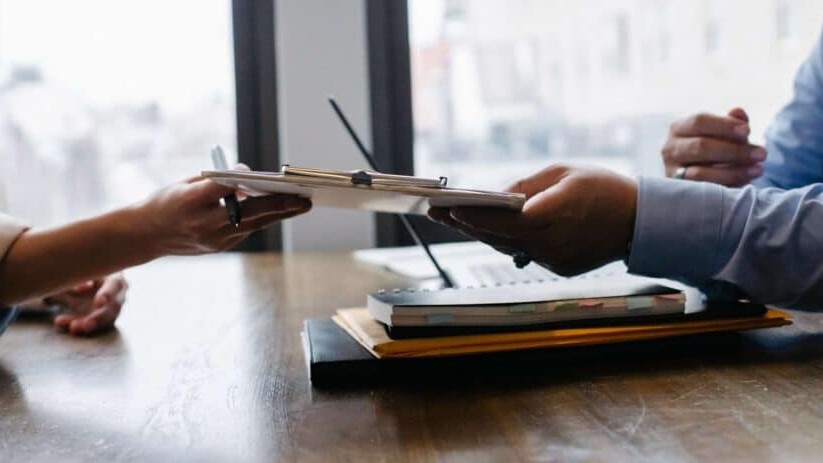To achieve a successful investigation, an interview strategy is necessary. Through interviews, investigators hope to get an accurate and truthful recount of the events that occurred. The interview strategy refers to the techniques investigators will use to determine credibility, build rapport and obtain the correct story. Without an effective interview strategy, the overall investigation may not produce the desired results. There could be a lot of uncertainty due to missing information, as well as uncertainty related to which version of events is the truthful one.
Building the right interview strategy
Before you begin, it’s important to highlight that any interview strategy you create will need to be modified according to every case you deal with. On top of that, an interview strategy may need to be modified during the investigation process as well. Some things to consider are:
- Establishing a clear purpose for questions asked
- Focus on rapport
- Consider the PEACE model
- Involve the interviewee in the process
Establishing a clear purpose for questions asked
A hard rule during investigation interviews is to keep the questions open-ended and allow the interviewee to share as much information as needed. To do this, the investigator will need to carefully think about the right questions to ask.
The best way to do this is to categorise questions by their purpose. You have probably been in a situation before where you felt the other person was asking very similar questions that felt repetitive. How did you feel? In an investigation, this can be a very damaging practice as it could lead to the interviewee feeling frustrated or tired. When putting questions together, it’s important to ask:
- What am I trying to achieve with this question?
- Am I expecting a certain type of answer? What happens if I don’t get the answer I am expecting?
- How will this question help in establishing credibility?
- What are the best follow-up questions that can support this question?
- Is this question suggestive?
- Will this question encourage the interviewee to provide as much information as possible?
Of course, more questions can be asked, but after you are satisfied with the first stage, it’s time to move to the next one.
A clear purpose will need to be divided into different categories. This can be done by labelling each question. For example, you could have information gathering, rapport building, time, date, location, order of events, credibility and more.
This will ensure that all areas of the interview are covered without any confusion, uncertainty or vagueness. It will also allow the interviewer to only ask necessary questions and not questions that have already been asked previously which will allow for a smoother flow.
Focus on rapport
One of the categories was focused on building rapport, but how is that possible? Usually, investigators are focused on building rapport through questions. This means that questions can’t be accusatory or badly worded. They need to be well thought out as this will help the interviewee feel more at ease.
However, rapport can be built through facial expressions and body language. If you want the employee to feel relaxed, then it is highly advisable that you also keep a relaxed demeanour and a positive facial expression. Noting, a calm or relaxed demeanour may not always be what investigators are trying to get across. It’s essential that as part of the planning stage, a decision is made on how the interview process is approached so there is consistency throughout the whole investigation process. Strict and cold facial expressions at one stage and calm and relaxed ones at other stages can throw people off and make them feel confused. It will also make them feel less likely to trust the investigator.
Lastly, investigators also choose to build rapport through the environment they choose for the interview. A familiar environment can make interviewees feel calmer and more trusting. A room that is cozy and clean is more effective than a cold room the individual has never seen before. If an interview needs to be held in a different location, it could be a good idea to adapt the room before the interview begins.
The better the rapport built, the more likely it is that individuals will share information.

Consider the PEACE model
The PEACE model is a trusted interview strategy for many investigators. We have covered the PEACE model in detail before. To summarise, the PEACE model focuses on 5 steps:
- Preparation
- Engagement
- Account, Clarification, Challenge
- Closure
- Evaluation
The preparation stage allows the investigation team to plan out the whole interview process, delegate tasks and determine how the interview will be recorded and documented. Our clients use Polonious to carry out remote interviews as with our Simple2Connect integration, they can have secure conversations and save all notes in one system.
The engagement step focuses on elements of the investigative interview; how the interview strategy is carried out, how the investigator builds rapport and the way information is used during the interview to come up with follow-up questions.
Account, clarification and challenge are part of a great interview strategy for establishing credibility. When an interviewee gives answers, the investigator can repeat the information back to clarify and try to indirectly challenge any inconsistencies they have found.
The closure step of the PEACE model enables the interviewer to summarise what has been said and get agreement, and also allows the interviewee to ask any questions they have. The aim is to have the interviewee leave the interview in a positive frame of mind. Interviewees can request more information from the investigator, enquire about the next steps and clear any confusion on their part. The interviewee may ask some questions that the investigator can’t answer. It should be communicated to the individual that questions should remain focused on areas the investigator can provide clarity on.
The last step of this interview strategy is evaluation. This refers to the investigation team analysing the information that was collected during the interview and the outcomes it could lead to. The investigator can also look at any areas for improvement to ensure a better interview process going forward.
Involve the interviewee in the process
Collaboration is a very effective interview strategy. In a collaborative interview, the interviewee feels part of the process, is given information that makes them feel involved and the investigator is actively trying to empathise with them. A collaborative interview strategy will make the individual feel like they are trying to approach the issue as a team rather than as a formal process. The interviewer should acknowledge that there is no right or wrong answer or person. It should be explained to them that the company doesn’t have an agenda against them and that the whole interview will be objective.
Thank the interviewee for being cooperative and acknowledge that they’re time-poor. While collaboration is encouraged, the interviewer should establish boundaries so the interviewee doesn’t feel betrayed or excluded from certain topics. The investigator should make them feel comfortable without giving them free rein.
Creating a thought-out interview strategy
In Australia, the most common reason employee well-being is negatively affected is workplace bullying or harassment, affecting on average 1 in 4 workers. A well-organised interview strategy will help employees feel heard, fairly treated and well-informed at every stage of the process. This will prevent further damage to their mental health and well-being. If the interview strategy is created appropriately for the case at hand, a faster investigation process can be carried out.
Another way to achieve a faster investigation is to look for a great case management system. Polonious is trusted worldwide by many investigators due to the high-quality system that we offer. We are ISO 9001 and ISO 27001 certified, continuously working on providing investigators with a user-friendly, easy-to-use and efficient case management platform. We enable investigators to complete all their tasks from one place. They can upload their documents, save their notes, streamline their workflows and conduct interviews with a few button clicks.
If you want a more efficient interview process and faster investigation outcomes, reach out and book a demo! We would be happy to show you how our system can help you.
Let's Get Started
Interested in learning more about how Polonious can help?
Get a free consultation or demo with one of our experts
Eleftheria Papadopoulou
Eleftheria has completed a Bachelor's of Business with a major in Marketing at the University of Technology Sydney. As part of her undergraduate studies she also obtained a Diploma in Languages with a major in Japanese. Following her graduation she has been working as a Marketing Coordinator and Content and Social Media Specialist.
Eleftheria is currently finishing her Master in Digital Marketing.




